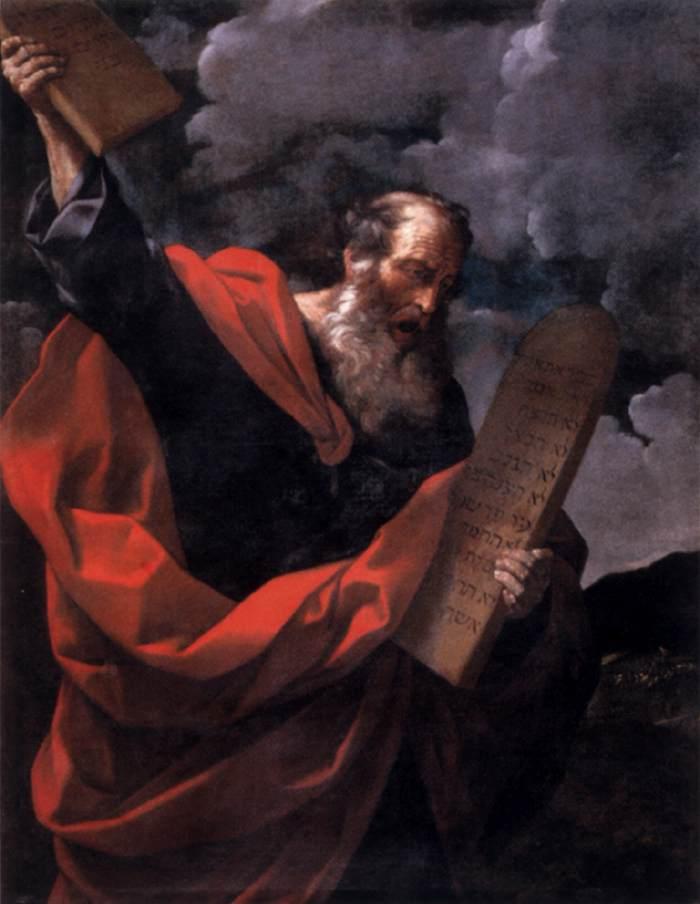Moses, an influential figure in the Abrahamic religions, is believed to have lived during the 13th and 14th centuries BCE. His life story is bestowed with immense significance in religious texts and teachings, particularly in Judaism, Christianity, and Islam.
According to the Hebrew Bible, Moses was born during a period when the Israelites, descendants of Abraham, were enslaved in Egypt under Pharaoh’s rule. As an infant, Moses was placed in a basket and set adrift on the Nile River by his mother to protect him from Pharaoh’s order to kill all Hebrew male children. Miraculously, he was found by Pharaoh’s daughter and raised as a member of the royal household.
As Moses grew older, he became aware of the suffering of his fellow Hebrews and felt compelled to help them. One day, while witnessing an Egyptian taskmaster mistreating a Hebrew slave, Moses intervened and accidentally killed the taskmaster. Fearing the consequences, he fled to the wilderness of Midian, where he encountered the Burning Bush. This divine encounter marked the beginning of his significant role as a leader and prophet.
Guided by God, Moses returned to Egypt and confronted Pharaoh, demanding the liberation of the Israelites. After a series of legendary plagues that devastated Egypt, Pharaoh finally relented. Thus began the epic journey of the Israelites out of Egypt, known as the Exodus, where Moses displayed remarkable leadership and faith.
During the Exodus, Moses led the Israelites through numerous hardships, including crossing the Red Sea, receiving the Ten Commandments on Mount Sinai, and ensuring the proper worship of God. However, the Israelites’ journey was not without challenges, as they often succumbed to doubt and temptation. Moses, as their leader, was instrumental in guiding and reminding them of their covenant with God.
Ultimately, Moses’ life came to an end before the Israelites reached the Promised Land. He was allowed to view the land that God had promised to their ancestors but was forbidden from entering it himself. Joshua, Moses’ successor, led the Israelites into the Promised Land, as Moses’ legacy and teachings continued to shape their faith and identity.
Moses’ life is a testament to his unwavering faith, his leadership qualities, and his unwavering commitment to God’s commands. His teachings and the events of his life are cherished and celebrated by millions around the world, emphasizing the significance of his influence on the development of Judaism, Christianity, and Islam.
More About : When Did Moses Live
Introduction
Moses, one of the most prominent figures in religious history, is believed to have lived in ancient Egypt during the 13th century BCE. Known for leading the Israelites out of slavery and delivering the Ten Commandments, Moses holds a significant place in Judaism, Christianity, and Islam. This article will explore the life and historical context of Moses, shedding light on his contributions and impact on the world.
I. Early Life
Moses’ story begins with his birth during a time when the Israelites faced persecution under Pharaoh’s rule. As a baby, Moses was placed in a basket and set adrift on the Nile River, where he was discovered and adopted by Pharaoh’s daughter. This unique upbringing allowed Moses to experience both the lavish life of the Egyptian royal family and the struggles faced by his fellow Israelites.
II. The Exodus
The turning point in Moses’ life came when he witnessed the suffering of his people and his connection to his Israelite heritage became undeniable. Following an altercation where he killed an Egyptian who was abusing an Israelite slave, Moses fled Egypt and settled in Midian. Here, Moses married Zipporah and led a peaceful life as a shepherd.
III. The Burning Bush and the Call to Deliverance
While tending to his flock, Moses encountered a burning bush that was not consumed by the flames. In this awe-inspiring moment, Moses received a clear calling from God, instructing him to return to Egypt and lead the Israelites to freedom. Initially hesitant, Moses eventually accepted his divine mission and embarked on the path that would make him a revered leader in history.
IV. The Ten Plagues
Upon his return to Egypt, Moses faced the daunting task of persuading Pharaoh to release the Israelites. God granted Moses miraculous powers to reveal his divine authority, unleashing ten devastating plagues upon Egypt. These included turning the Nile River into blood, swarms of locusts, and the death of the firstborn sons. Eventually, Pharaoh relented, allowing Moses and the Israelites to depart.
V. The Journey to the Promised Land
With their freedom secured, Moses led the Israelites out of Egypt on a journey towards the Promised Land. However, their path was fraught with challenges, including hunger, thirst, and conflicts with rival tribes. Throughout these hardships, Moses served as a wise and patient leader, ensuring the well-being of his people both physically and spiritually.
VI. The Ten Commandments and Legacy
Arguably Moses’ most significant contribution was receiving the Ten Commandments directly from God on Mount Sinai. These commandments served as a moral and ethical framework for the Israelites, shaping their belief system and setting guidelines for their interactions with one another and with God. Moses’ imparting of these commandments solidified his status as a revered religious figure and left a lasting legacy.
Conclusion
Moses, a central figure in religious history, lived during a crucial time in the formation of the Israelite nation. His life was marked by his encounter with the burning bush, his leadership during the Exodus, and his role as the recipient of the Ten Commandments. Moses’ influence transcends religious boundaries, as his teachings and actions continue to inspire millions around the world.
FAQs on When Did Moses Live
Q: When did Moses live?
A: Moses is believed to have lived during the 13th century BCE.
Q: In which era did Moses exist?
A: Moses lived during the Late Bronze Age.
Q: Was Moses a real historical figure?
A: While there is no direct archaeological evidence of Moses’ existence, he is considered a significant figure in religious history and the foundational leader of ancient Israelites.
Q: When was Moses born?
A: The exact year of Moses’ birth is unknown, but it is estimated to be around 1390 BCE.
Q: How old was Moses when he died?
A: Moses is believed to have died at the age of 120 years.
Q: How long did Moses lead the Israelites?
A: Moses led the Israelites for approximately 40 years during their journey from Egypt to the Promised Land.
Q: What is the period of Moses’ leadership called?
A: Moses’ leadership period is often referred to as the Exodus, which encompasses the liberation of the Israelites from Egyptian slavery.
Q: Where did Moses receive the Ten Commandments?
A: According to religious texts, Moses received the Ten Commandments from God on Mount Sinai.
Q: What role did Moses play in the formation of Judaism?
A: Moses is considered a central figure in the development of Judaism. He delivered the laws, including the Ten Commandments, which became an important component of Jewish religious and cultural practices.
Q: When did Moses die?
A: Moses is believed to have died around 1270 BCE, shortly before the Israelites reached the Promised Land.



